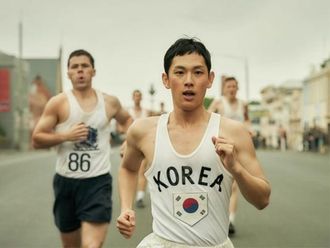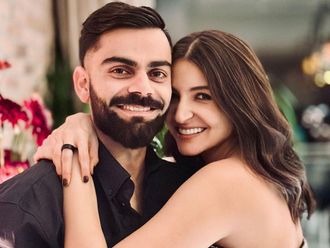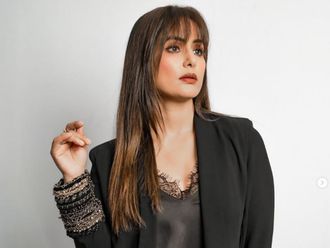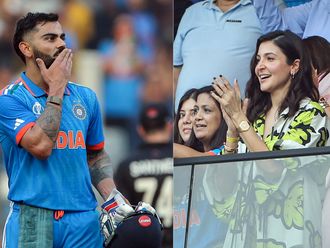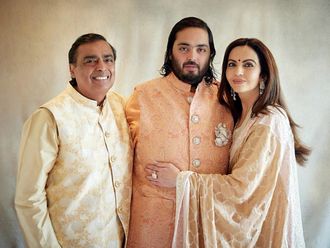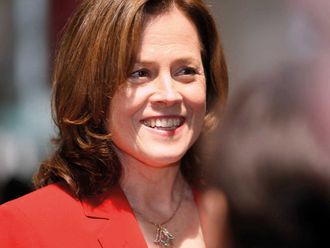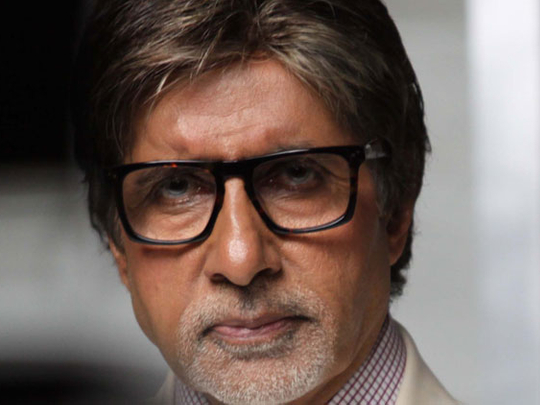
It's not breaking news to say that Bollywood titan Amitabh Bachchan's relationship with the media has been a fractious one. Over his four-decade reign, the matinee idol and the fourth estate have loved, loathed and lashed out at each other at regular intervals.
The mutual animosity was at its peak during the 1970s when the Mumbai media alleged that the Sholay star had pulled strings to impose press censorship during the emergency rule declared by Indira Gandhi. The press responded by refusing to cover Bachchan for 15 years. A truce and the lavish wedding of his son later, Bachchan was back in circulation with the media. Incidentally, the masses never blacked him out during this phase as he morphed into one of the biggest stars to emerge from Bollywood.
As Bachchan, 67, geared up to play a media baron in his latest film, Rann, he spoke to tabloid! over the telephone from Mumbai. In his defence, the highly articulate actor was more than happy to clear the air and pointed out that he was the last one to try and stage-manage an interview. "I think once you have accepted an interview, you can't dictate terms.
"They [the media] have the liberty to ask questions. After all, it's their prerogative to ask me all the questions they need to ask, and it's my prerogative on how to answer it or whether I should answer it.
"It's a mutual give and take."
Buoyed by his democratic outpouring, we decided to go straight for the jugular. Was there any truth to the allegations that he had convinced his close friend and political heavy-weight Indira Gandhi to impose a press ban in the 1970s? "Firstly there is [a] misconception in your mind about what my role was during that time. Yes, there was a press censorship during the emergency and the media in Mumbai thought I had it done. It's completely ridiculous. After that, they banned me.
"Remember, [the] media banned me first and when they banned me, I stopped talking to them... That went on for several years. Naturally, it was a ridiculous charge," Bachchan said in his trademark rich baritone.
Camping out
The cold war may have lasted for several years, but the star of over 180 films is surprisingly pragmatic when it comes to the paparazzi culture, which is fast invading Bollywood circles. Bachchan and his family were at the receiving end in April 2007 during his son Abhishek's intensely private wedding to former beauty queen Aishwarya Rai. The union — to which the media wasn't invited — saw the press camping outside the Bachchan residence for more than three days to catch a glimpse of the nuptials. The press and the public went on an unprecedented mob-like overdrive and created a festive furore.
"If you are a public figure, then the paparazzi culture comes with the territory. We do not have [the] right to stop somebody if we go out in public. If we go out in public space, the air and the area belongs to the media as much as it belongs to me. Whether it is ethical or not — that the media will have to set their own code of conduct or be guided by the laws of the land.
"If we are public figures, we ought to be prepared for it."
But the Bollywood patriarch set the boundaries during his son's much-hyped wedding. "During that time, we were very controlled as we wanted to have a private ceremony. The media had a right to cover it and had access to it from a vantage point. We actually told them we are not inviting anyone. We actually built stands for them outside our homes and even looked after them... fed them throughout the day. It was not like we were banishing them."
Though it was tempting to believe that Bachchan had become more empathetic towards the media and their quest to grab eyeballs after his experience of playing a media tycoon in his latest film, Rann, he was quick to clarify. "The film is not a documentary on how an electronic channel works. The story is set in the life of a media baron and his name is Vijay Harshvardhan Malik. He is an upright, erudite, well-respected individual, not just in his media fraternity but throughout the nation.
"His voice is like the voice of the nation. When he speaks, the nation listens to him. After all, [the] media is the conscience of the nation.
"But do you ever compromise your conscience to keep the business going? Media is also a business — do you compromise your business to keep your conscience intact? My character battles all these pressures."
The film is the union of the maverick director Ram Gopal Varma and Bachchan. Between the two, they have delivered cinematic gems such as the mafia-saga Sarkar and disasters like Ram Gopal Varma Ki Aag. The latter was a shoddy remake of the 1970 cult classic Sholay — a film that had catapulted Bachchan into superstardom. A box-office hit or miss, it is clear where Bachchan's loyalties lie.
"He [RGV] has a great passion for cinema and he puts me in great challenging roles. I think we have done pretty well together. I enjoy the way he makes his films and I hope to do more with him."
The admiration is not one-sided. Varma, one of Bollywood's most prolific directors, is equally enchanted with the matinee idol. "We have done several films together and it is amazing how he rises up to a challenge each time. He comes up with a different and an unusual take each and every time," Varma said.
Rising star Riteish Deshmukh, who plays an investigative journalist in Rann, tops up his claims. "Mr Amitabh Bachchan is one of the greatest Indian stars and it would have been easy for him to intimidate me. But he did not. He made me feel so comfortable and it's always a pleasure to watch him perform."
Taking a break
Though their previous outing — the fantasy film Aladdin — did not work at the box office, Deshmukh is confident Rann will find takers.
The film is also the second to last release from Bachchan who has seen as many as four releases in 2009. "Due to the multiplex strike, many of my movie releases were stacked together. After Rann, I have Teen Patti and after that there will be a long gap. I have not signed any films since May, last year." But he is quick to add that he is not retiring from the scene either.
"So long as the body lasts, the face lasts and people are willing to look at you, I hope I can continue working."


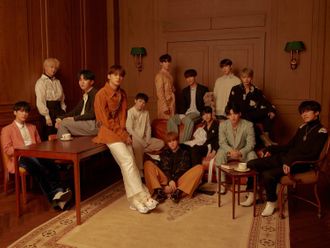
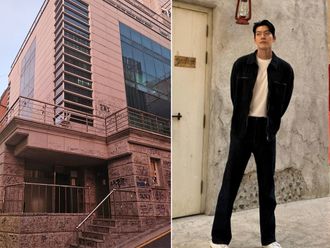
_resources1_16a30b3d57a_small.jpg)
